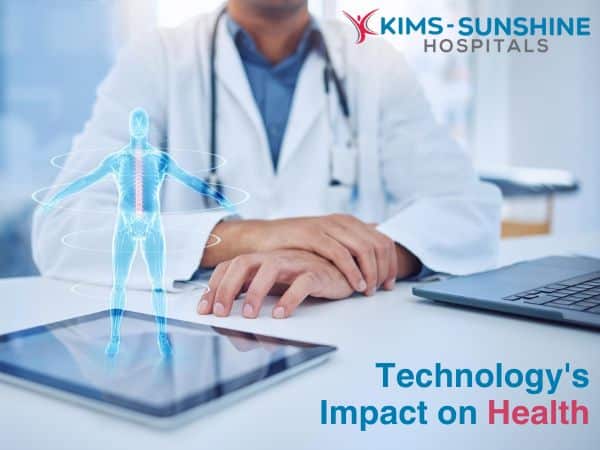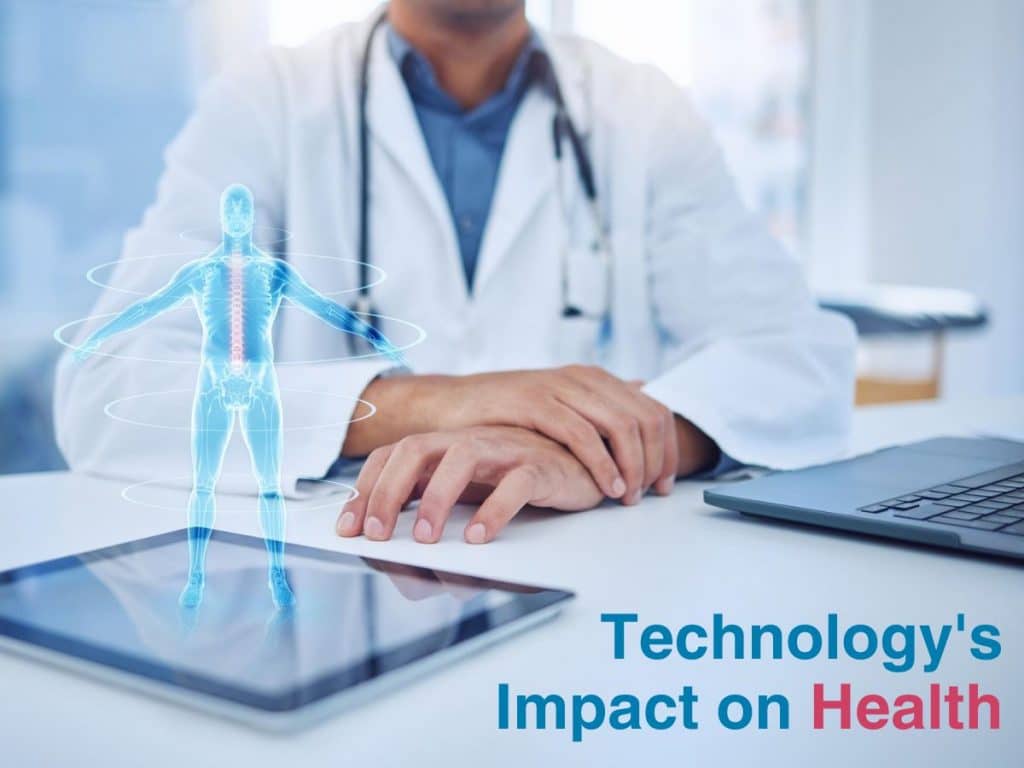
Technology’s Impact on Health

Living without technology almost seems impossible.
Technology has become an integral part of our daily lives, and its influence extends far beyond just communication and entertainment.
In healthcare, technology is playing an increasingly significant role, offering both promising advancements and potential pitfalls.
Let’s explore the double-edged sword of technology’s impact on health.
The Positive Side: How Technology Improves Healthcare
The role of technology in modern healthcare is undeniable, and its positive impact can be seen in various areas:
Digital Health Innovations: From telemedicine to wearable devices, digital health innovations have revolutionized the way we monitor and manage our well-being. Telemedicine, for instance, has greatly increased accessibility to healthcare, especially in remote areas. A 2023 study by the Journal of the American Medical Association (JAMA) found that telemedicine use increased significantly during the COVID-19 pandemic, with nearly 38% of Medicare beneficiaries using telehealth services in 2020.
Improved Diagnostics: Advanced imaging techniques like MRIs and CT scans have paved the way for earlier and more accurate diagnoses, allowing for timely interventions and better treatment outcomes.
Precision Medicine: The advent of genetic testing and personalized treatment plans based on individual factors has ushered in a new era of tailored healthcare.
The Flip Side: Negative Effects of Technology on Health
While technology has undoubtedly brought numerous benefits, it’s essential to acknowledge the potential health risks associated with technology use:
Screen Time and Technology Overuse: Excessive screen time can lead to eye strain, sleep disturbances, and even posture problems. A 2022 study published in the Journal of the Canadian Chiropractic Association suggests a correlation between increased screen time and an increased risk of neck pain.
Wearable Technology and Health Apps: While fitness trackers and health apps can motivate some individuals, the pressure to constantly monitor activity levels and health data can lead to anxiety and obsessive behaviors.
Data Security Concerns: The proliferation of health apps and devices raises concerns about data security, with sensitive health information potentially at risk of breaches or misuse.
The Social Media Conundrum: Impact of Social Media on Mental Health
Social media’s influence on our mental well-being is a growing concern. Numerous studies have suggested a link between excessive social media use and increased symptoms of anxiety and depression. A study by the University of Pennsylvania found that limiting social media use to 30 minutes per day led to significant reductions in loneliness and depressive symptoms.
Conclusion: Finding the Balance
Technology is a powerful tool that can significantly improve healthcare access and empower individuals to take charge of their well-being. However, mindful use is crucial to avoid the potential downsides. Here are some tips for striking a healthy balance:
- Set reasonable screen time limits and prioritize real-world interactions.
- Approach health apps and devices with a critical eye, consulting with healthcare professionals before relying on them solely.
- Maintain a healthy balance between social media engagement and real-life connections.
- Be mindful of data privacy and security when using health-related apps and devices.
Technology can be a force for good in healthcare, but it’s up to us to use it responsibly and prioritize healthy habits for a well-rounded approach to well-being.






